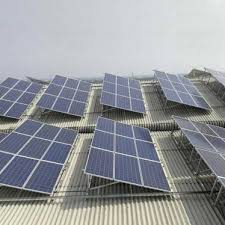Adani Subsidy
Adani subsidies refer to the financial support and incentives provided by the Indian government to the Adani Group, a major conglomerate involved in industries like energy, infrastructure, logistics, and agribusiness. These subsidies can come in various forms, including tax breaks, land concessions, and funding for projects. Here are some potential benefits associated with such subsidies:
1. Economic Development
Job Creation: Subsidies enable the development of large-scale projects, such as power
plants, ports, and infrastructure, leading to the creation of numerous jobs.
Boost to GDP: Large industrial and infrastructure projects contribute significantly
to the country’s economic growth by boosting GDP.
2. Infrastructure Improvement
Enhanced Connectivity: Investments in infrastructure like roads,
railways, and ports improve transportation networks, facilitating trade and
mobility.
Energy Security: Subsidies for renewable energy projects, such
as solar and wind, help to increase the share of clean energy, thereby
enhancing energy security.
3. Promoting Renewable Energy
Clean Energy Transition: Government support for renewable energy
projects helps companies like Adani invest in solar and wind power, which aids
India's transition towards clean energy.
Reduction in Carbon Footprint: Encouraging green energy projects helps reduce
the country's overall carbon footprint.
4. Attracting Foreign Investment
Investor Confidence: Subsidizing large projects can attract foreign
investors who see government backing as a sign of stability and support, which
can lead to increased foreign direct investment.
5. Regional Development
Development in Rural and Remote Areas: Many projects, especially in infrastructure
and energy, are located in less developed regions, leading to regional economic
development and better living standards.
Social Programs and Community Welfare: Companies often engage in corporate social
responsibility initiatives, improving local communities' access to education,
healthcare, and basic amenities.
6. Technological Advancement
Innovation in Energy:
With subsidies, companies are more likely to invest in new technologies,
particularly in renewable energy and sustainable infrastructure, driving
technological progress.
Skill Development: Large-scale projects often lead to skill
development initiatives for the local workforce, raising the overall skill
level of the population.
While these benefits
are significant, it's worth noting that subsidies can also lead to debates
around government favoritism, the efficient use of public resources, and
environmental concerns related to certain projects.
.jfif)
.jpg)


Comments
Post a Comment